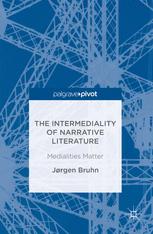

Most ebook files are in PDF format, so you can easily read them using various software such as Foxit Reader or directly on the Google Chrome browser.
Some ebook files are released by publishers in other formats such as .awz, .mobi, .epub, .fb2, etc. You may need to install specific software to read these formats on mobile/PC, such as Calibre.
Please read the tutorial at this link: https://ebookbell.com/faq
We offer FREE conversion to the popular formats you request; however, this may take some time. Therefore, right after payment, please email us, and we will try to provide the service as quickly as possible.
For some exceptional file formats or broken links (if any), please refrain from opening any disputes. Instead, email us first, and we will try to assist within a maximum of 6 hours.
EbookBell Team

4.0
16 reviewsThis book argues that narrative literature very often, if not always, include significant amounts of what appears to be extra-literary material – in form and in content – and that we too often ignore this dimension of literature. It offers an up to date overview and discussion of intermedial theory, and it facilitates a much-needed dialogue between the burgeoning field of intermedial studies on the one side and the already well-developed methods of literary analysis on the other. The book aims at working these two fields together into a productive working method. It makes evident, in a methodologically succinct way, the necessity of approaching literature with an intermedial terminology by way of a relatively simple but never the less productive three-step analytic method. In four in-depth case studies of Anglophone texts ranging from Nabokov, Chandler and Tobias Wolff to Jennifer Egan, it demonstrates that medialities matter.